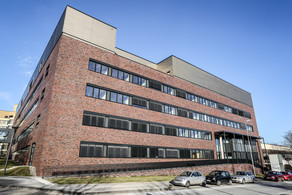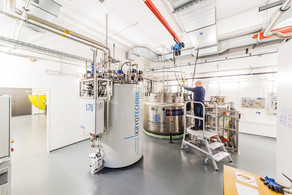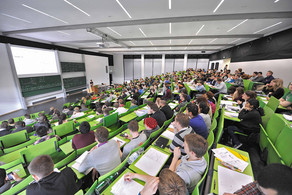Thesis defense of Jan Benjamin Soedingrekso
- Defense
Muons are the dominant particle type measured in almost every underground experiment mainly driven by the high production rate of muons in cosmic-ray induced air showers as well as the long muon range. Due to their stochastic propagation behavior, they can remain undetected with minimal energy losses in veto regions while producing a signal-like signature with a large stochastic energy loss inside a detector. Therefore, accurate description of theoretical models and precise treatment in simulations as well as a validation of the cross-section with measurements are required. In this thesis, systematic uncertainties in simulations of high-energy muons were analyzed and improved, which can be divided into three parts. The theoretical models of the cross-sections were revised and radiative corrections for the pair production interaction were calculated. In a next step, the Monte-Carlo simulation library PROPOSAL was completely restructured in a modular design to include more accurate models and corrections. Due to its improved usability through the modular design and its accessibility as free open-source software, PROPOSAL is now used in many applications, from large simulation frameworks, such as the CORSIKA air shower simulation, to small simulation studies. The third part consisted of a feasibility study using PROPOSAL to measure the bremsstrahlung crosssection from the energy loss distribution, which can be measured in cubic kilometer-sized detectors. For a detector resolution similar to that of the IceCube neutrino telescope, the bremsstrahlung normalization was estimated with an uncertainty of 4%.









